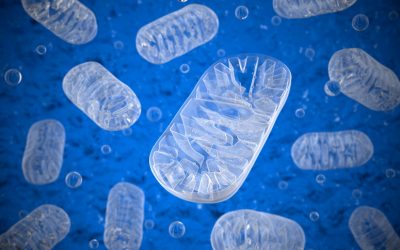The Role of Astragalus Polysaccharides to Remove Oxidative Stress Known to Cause Chronic Fatigue
Fatigue is a hallmark symptom of numerous disorders including depression, anemia, diabetes, congestive heart failure and countless other chronic conditions. Fatigue may also be observed after strenuous physical activity or in the form of mental tiredness. Drawn out recovery after over exertion in exercise is one of the key indicators of fatigue. However, below the outwardly physical observations of fatigue, this symptom can be a marker of mitochondrial disease at the cellular level. Extreme physical activity can result in a build up of free radicals, which can develop tissue damage and oxidative stress, ultimately deteriorating the muscles. As mitochondria are responsible for energy production within the cells, any prolonged damage or stress induced upon these cellular components leads to altered structures and inhibited energy metabolism, causing fatigue.
There is a growing need for therapeutic solutions to suppress mitochondrial damage in order to lessen the chances of chronic fatigue. Researchers are turning to natural supplements utilized in traditional Chinese medicine to amend this harmful process. One proposed herb is Astragalus membranaceus, commonly used to “qi-tonify” or return vital energy during deficiencies. Astragalus polysaccharides (APS), a chain of sugar molecules, have been isolated from the herb to improve endurance and prevent mitochondrial damage by destroying free radicals that are central to oxidative stress.
In a recent mouse model, experimental subjects were subjected to an endurance procedure with APS supplementation to assess any physiological response in the mitochondria in regards to fatigue development. With exercise and APS supplementation, there were no alterations in body weight. However significant differential strength was observed with APS and exercise induced mice obtaining stronger forelimb grip and prolonged time to exhaustion during swimming exercises. Ultimately, the researchers observed that excessive physical activity promoted fatigue and decreased strength performance, but APS supplementation was sufficient to improve endurance. On the molecular level, APS supplementation was able to prevent the accumulation of oxidative stress biomarkers, lactate dehydrogenase and malondialdehyde, which are known to increase during physical training. The expression of a compound PGC-1α is essential to the synthesis of mitochondria and its structural components. Excessive physical activity decreases the concentration of PGC-1α, and researchers found APS supplementation restored these levels within the cell.
In order to function appropriately and effectively, mitochondria must be able to synthesize and go through the processes of fusion and fission to generate energy for skeletal muscle during activity. Excessive exercise leads to an accumulation of reactive oxygen species, also known as free radicals, which have the ability to disrupt the fusion-fission process and impede synthesis. Heightened levels of reactive oxygen species can ultimately lead to permanent damage and death of the mitochondria. Researchers tied free radical production to decreased levels of PGC-1α, an activator essential to biosynthesis of mitochondria in the muscles. Low levels of PGC-1α have been observed in other chronic conditions such as diabetes and metabolic dysfunction. APS supplementation scavenged the reactive oxidative species and was able to prevent swelling of the mitochondria and further oxidative stress in muscular cells induced to extreme exercise. Through antioxidant capabilities and restoration of PGC-1α levels within the mitochondria, APS has shown promising remedies to prevent fatigue driven by mitochondrial disease.
Reference—
Yan-Feng Huang, Lu Lu, Da-Jian Zhu, et al., “Effects of Astragalus Polysaccharides on Dysfunction of Mitochondrial Dynamics Induced by Oxidative Stress,” Oxidative Medicine and Cellular Longevity, vol. 2016, Article ID 9573291, 13 pages, 2016. doi:10.1155/2016/9573291
